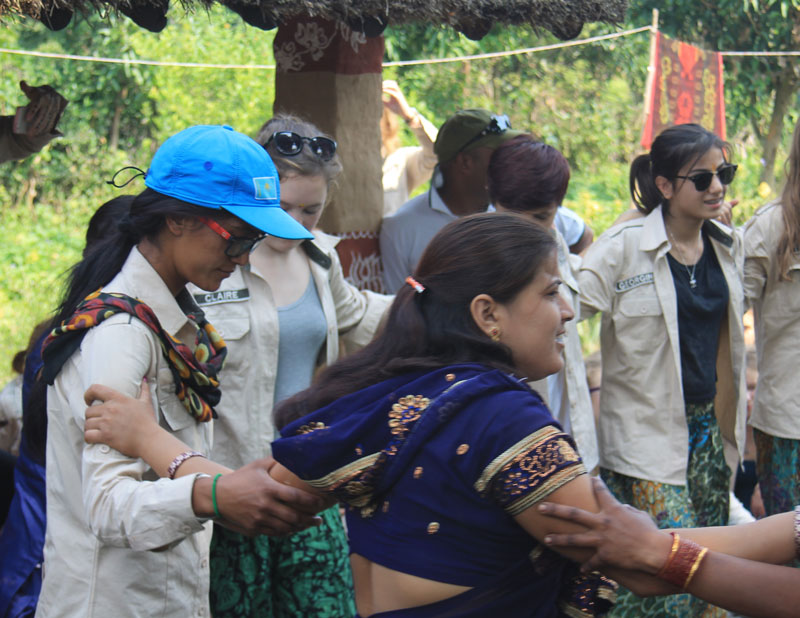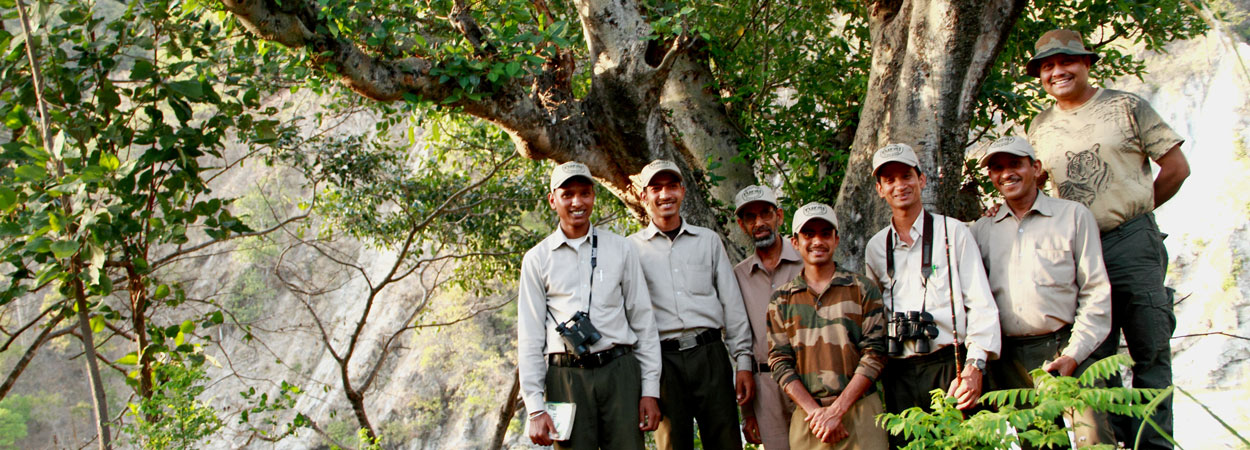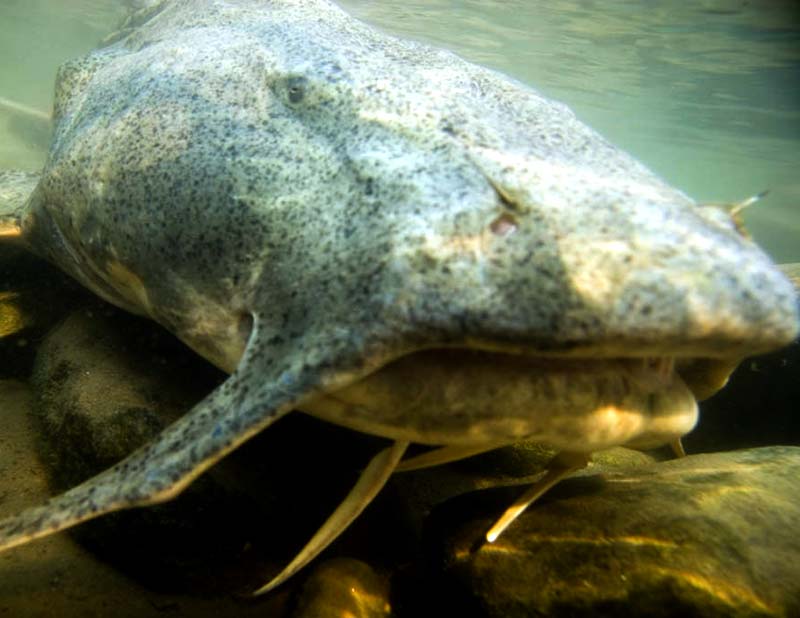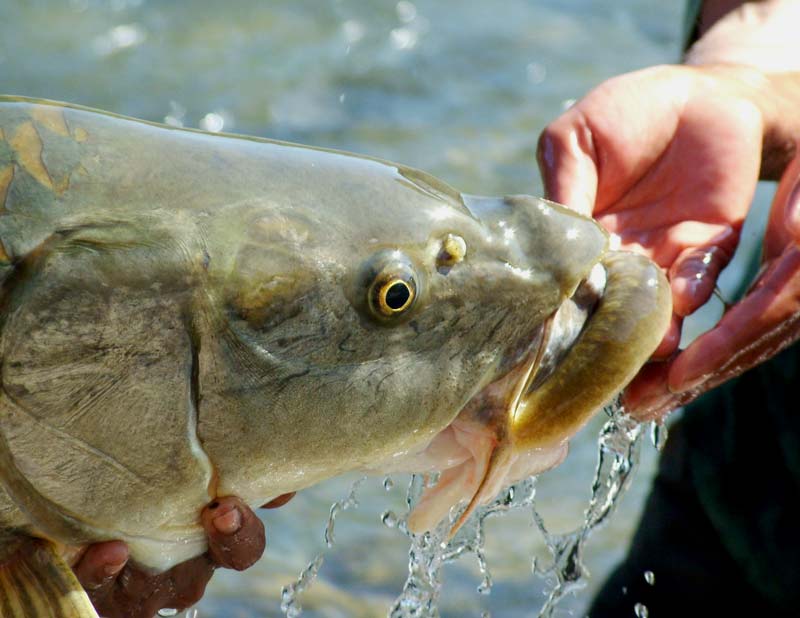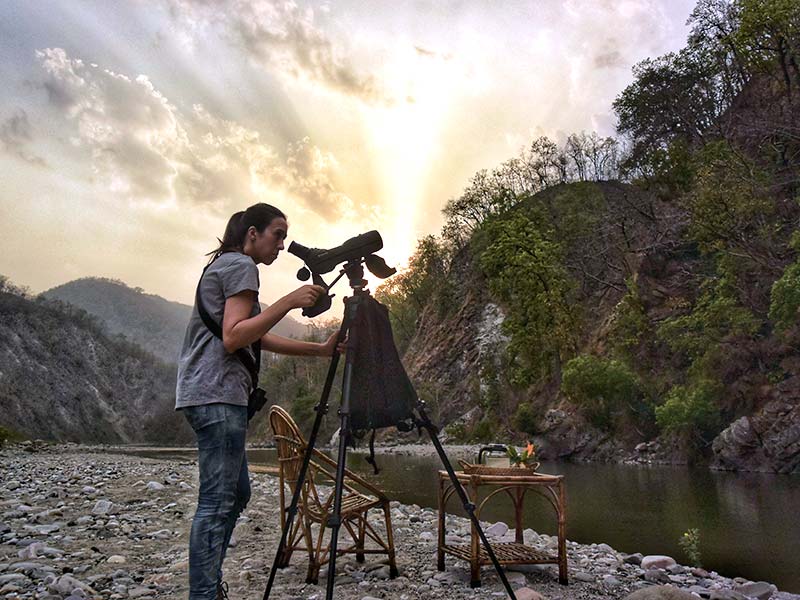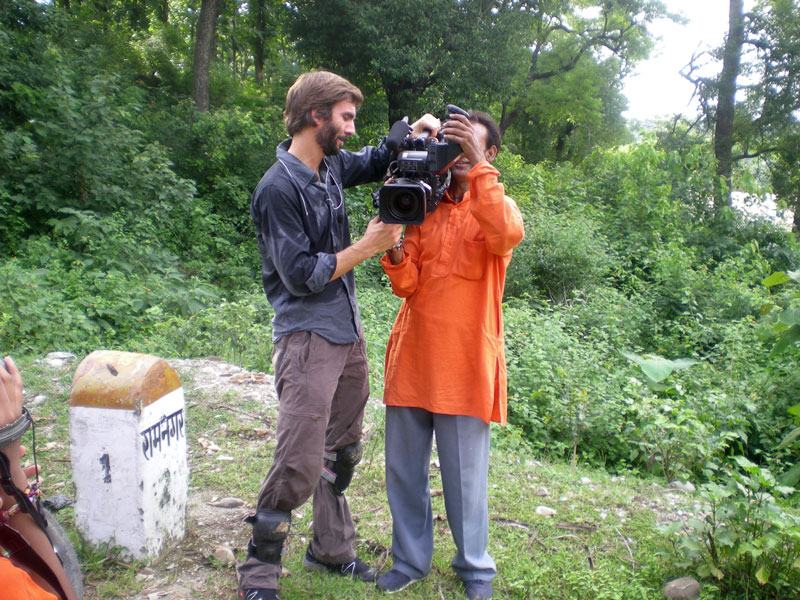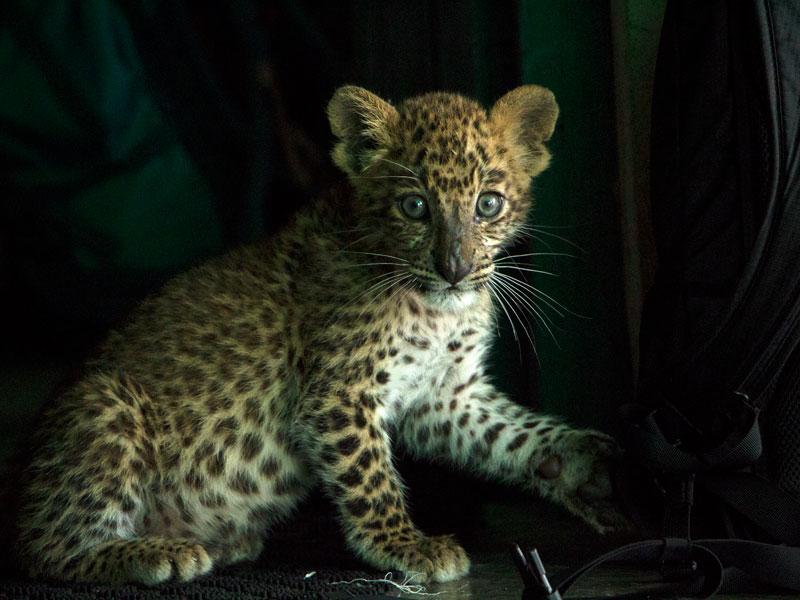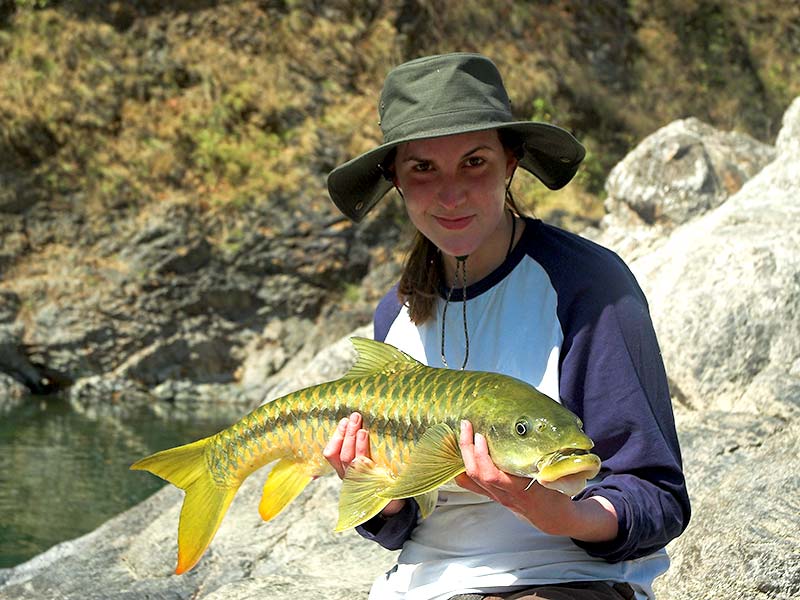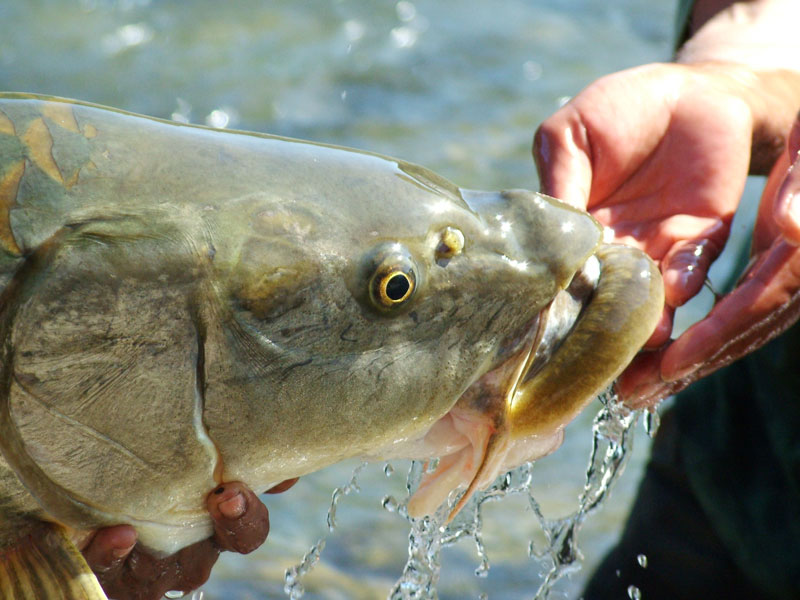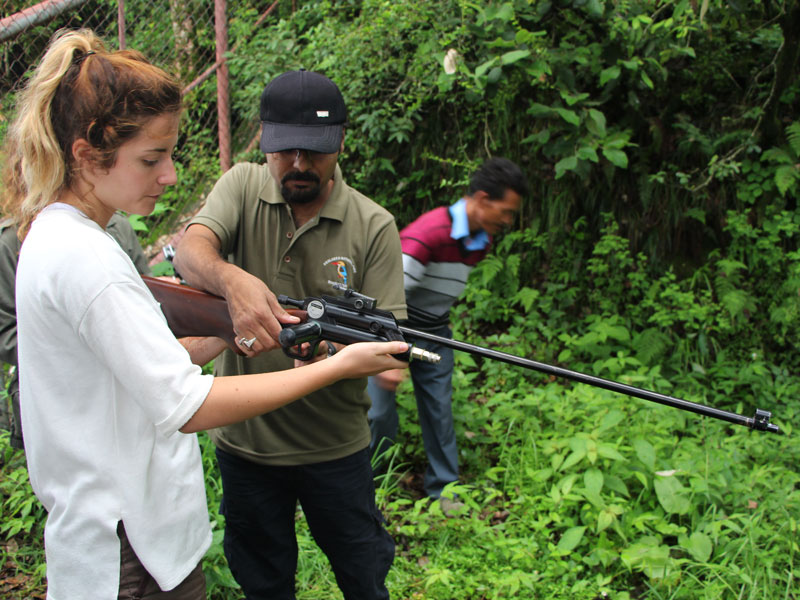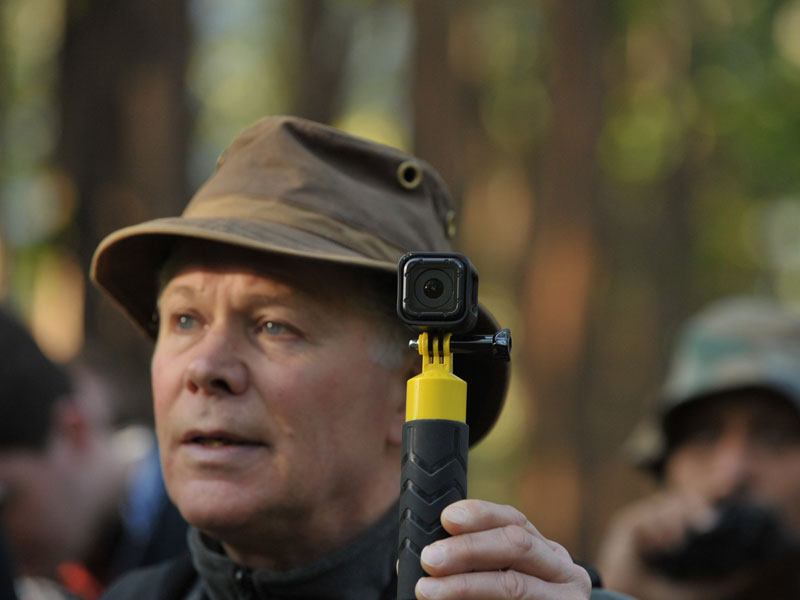Conservation
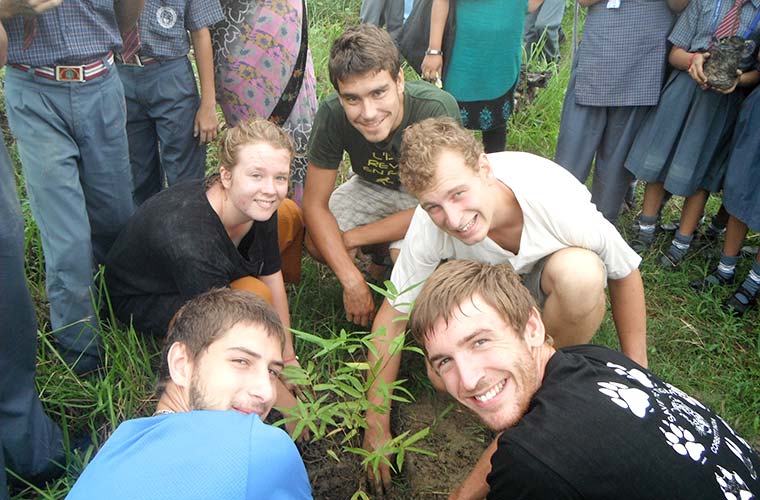
Restoration
When the area was first taken over in 1999, the land had degenerated due to the large number of cattle that once grazed here and was overrun with lantana, a prolific invasive plant species. Even before Vanghat’s cottages were constructed, the first step was habitat restoration.
Indigenous broad-leafed saplings and fruit trees were planted especially to attract all manner of birds, and today almost 5000 plants have converted Vanghat's setting into a riverine paradise, once again rich with mammal and avian species that blend into the protected reserve area of which we see ourselves as an extension.
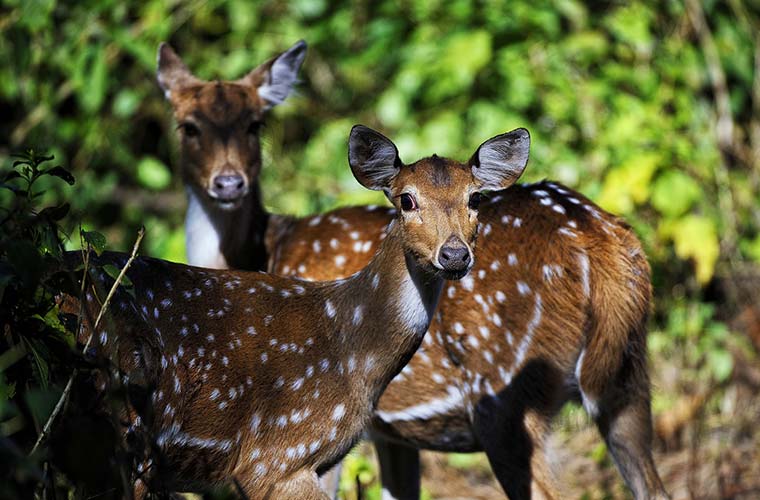
Regenerating
Being situated within a valley, the lodge is set along a natural wildlife corridor, as it is paramount to have the lowest possible impact on local wildlife. With outdoor lighting limited to candles and a camp fire, Vanghat often sees wandering groups of elephants pass gracefully right outside the property. That these giants now arrive in herds rather than as solitary bulls as seen in the past is a testimony to our work on regenerating the wilderness. Other herbivores have increased too, and as a result we now see carnivores such as tigers and leopards and their pug marks, and alarm calls from various deer species are an almost daily occurrence.
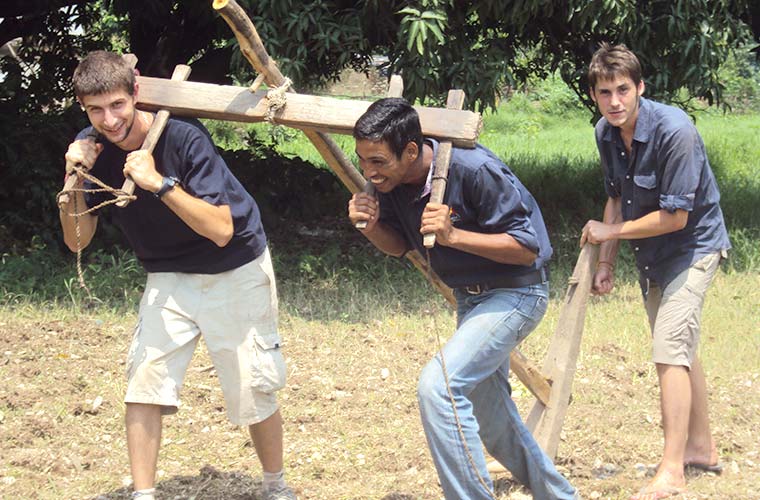
Eco Friendly
We are continuing to find new ways to make Vanghat as environmentally friendly as possible. We encourage our guests to drink filtered water instead of bottled, and we use as much local produce as possible in the creation of our wholesome and varied meals. We have equipped our cottages with energy-saving fans instead of air conditioning. Toiletries provided are all organic and biodegradable. We also strive towards obtaining as much electricity as we can from solar panels. Our walking safaris are low-impact by their very nature, and our Golden Mahseer catch-and-release fishing, twinned with its community element, have proved to be more than sustainable. The mantra of 'take only photographs, leave only footprints' is certainly fitting at Vanghat!
The Research
Despite the lodge's limited resources, Vanghat is proud to support a number of conservation initiatives and research both from the lodge itself and in the surrounding area. From Vanghat, we are conducting an ongoing species-richness programme, a research project undertaken by volunteers primarily through the use of camera traps, to discover and record the myriad of wildlife that exists in our immediate vicinity. Results so far have been extremely rewarding and encouraging, with tigers, leopards, sloth bear, elephants and sambar deer captured on volunteers' cameras, along with more unfamiliar species such as pangolin, leopard cat and Himalayan Black Bear.
The lodge has also been the main support for the Society for Mahseer Conservancy, an Uttarakhand-based, not-for-profit conservation organization set up to address grassroots conservation issues specific to wildlife and community-based interests of the region. In partnership with host communities, the forest department and several national and international conservation agencies, the Society for Mahseer Conservancy stands as an example that conservation issues can be effectively addressed through grassroots initiatives and sheer willpower despite very limited resources. It has instigated and promoted conservation initiatives of the nationally recognised successful comeback of the Golden Mahseer fish in the Ramnagar River (which can be seen at Vanghat) and has also raised awareness for protecting the nest sites of the critically-endangered Indian vulture, and founded schemes to reduce human-wildlife conflict around Corbett National Park. Over the years, the Society for Mahseer Conservancy has also assisted numerous students with research, internship, and PHD programmes, and has been a regional favourite with gap year students and eco-volunteers.
Signup for our Newsletter
Know whats happening.

